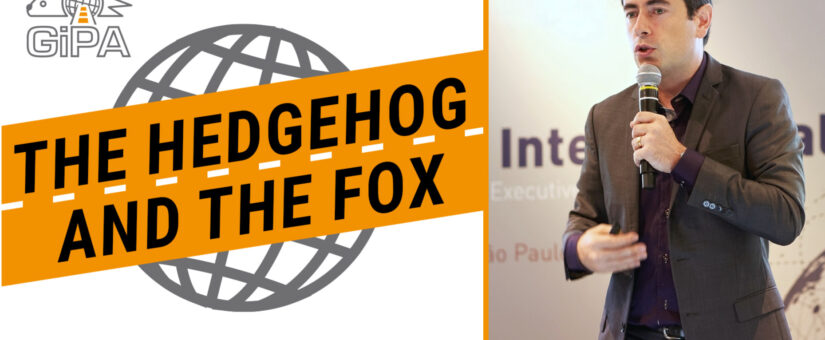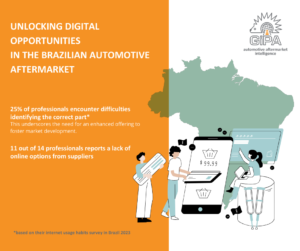
Unlocking Digital Opportunities in the Brazilian Automotive Aftermarket Categories: 2023, News Timelines: Argentina, Brazil, Central America, Chile, China, Colombia, France, Germany, India, Italy, Mexico, Morocco, Peru, Poland, Portugal, Russia, South Africa, Spain, Thailand, Turkey, Ukraine, United Kingdom, Vietnam
Announcement Date : 13 November 2023
In the latest podcast episode released by GiPA, Laurent Guernaud unveils the potential for players in the automotive aftermarket industry in Brazil.
Various researches show that Brazil stands out as one of the countries experiencing the most significant growth in e-commerce in recent years. According to these studies, Brazil ranks among the top 15 to top 10 largest e-commerce markets globally.
Through GiPA’s Aftermarket Market Monitoring program, we annually engage with over 4,000 drivers and 2,000 professionals, including repairers and retailers. Part of our inquiries revolve around their internet usage habits. Strikingly, our research, conducted with a consistent methodology across various countries, uncovers a unique trend in Brazil. While the proportion of drivers actively searching for car maintenance related topics online surpasses the global average, the actual online purchase rate is five times lower than the research rate.
This disparity signifies a robust potential for increased online sales.
So what are the reasons why this potential remains unachieved?
Notably, Brazilian drivers are not much used to purchase parts, neither physically or online. Do-it-yourself rate among drivers is lower than the global average. Despite a slightly highed proportion of Buy and Fit, Brazil underperforms Europe in this aspect, due to lower labor costs which limit the need for home-made solutions.
This is mainly why our inquiries into online purchasing behaviors reveal that, for both drivers and professionals, there is a reluctancy to buy spare parts online.
- Trust emerges as a central concern. Both drivers and professionals cite challenges related to time, efficiency, and trust when asked about their hesitation to embrace online purchasing.
- For the professionals, time, viewed in terms of both delivery and order placement, assumes paramount importance in Brazil. Professionals prefer direct contact for timely responses. Furthermore, the complexity of dealing with multiple suppliers, compounded by the lack of a unified platform, adds to inefficiencies.
- Confidence issues persist and necessitate a concerted effort to encourage professionals to adopt online platforms and streamline the ordering process.

Nevertheless, there exist other barriers impeding further e-commerce development.
A noteworthy revelation is that 25% of professionals encounter difficulties identifying the correct part—a challenge shared by drivers. This underscores the need for an enhanced offering to foster market development. Moreover, a significant portion of professionals (11 out of 14) reports a lack of online options from suppliers, highlighting deficiencies in the current landscape.
In conclusion, despite Brazilians being highly connected and conducting thorough research, converting these activities into actual online purchases poses a unique challenge.
Addressing the identified challenges and refining the online purchasing process can unlock the vast potential of the Brazilian automotive market.











